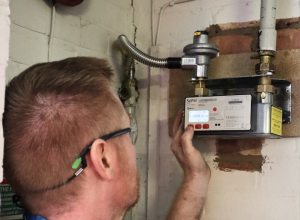World Environment Day – 5th June – the perfect time to consider your company’s green credentials
“It’s not always easy being green for SMEs,” says Kate Whitehouse, Environment, Health, Safety and Sustainability Manager at IMServ, one of the UK’s largest independent energy data management providers. “SMEs often worry that being green is costly, but it doesn’t have to be and it certainly doesn’t have to be expensive. With World Environment Day coming up, now is the time to consider your company’s green credentials.”
“There are a range of energy and emissions-led policies which apply to SMEs and not complying with this legislation will result in fines and can damage your company’s reputation. However once you are complying, you are well on your way to achieving ISO accreditation and turning these policies into a green agenda.”
One of the biggest challenges for SMEs is achieving initial buy-in from stakeholders especially the board and staff. However Kate says that by making small changes initially that don’t impact too heavily on your employees’ behaviour and the company’s profit margins, you can achieve buy-in.
Kate continues:
“A simple management system, with easy to implement and effective ideas can help you attain accreditation and also increase morale and engagement just by involving your team in green policy. Even basic ideas such as replacing personal waste bins with centralised recycling bins and setting timers on the air conditioning units will start to encourage employees to think about what they can do to reduce their environmental impact.
“Implementing small changes to improve your environmental impact can also inspire your employees to suggest their own ideas. At IMServ we have found that our staff are continually thinking about ways to make the business greener and this helps considerably with engagement of new policies throughout the company.”
To help any SMEs planning to ‘go green’, Kate has offered her top 7 tips on how to change employee behaviour towards environmental impact:
- Legislation first: It is important to acknowledge that while you may have aspirations of being carbon-neutral, this probably isn’t practical. Instead you should use legislation as a starting point, and then consider your aspirations and set targets accordingly.
- Easy wins: Think about where it might be easy to make small changes that would make a big difference. Installing recycling bins would be much easier and cheaper than tackling a complex issue like grey water solutions.
- Data: It is impossible to measure progress without data. Regardless of if you are implementing an environmentally friendly printing policy, or an energy management system, you need to have an idea of behaviour before and after, if you are to understand your performance.
- Engaging staff: Rather than implementing an entire environmental strategy overnight, taking small steps will help staff buy-in to your changes. Make sure you monitor engagement and put up reminders. Always explain why you are implementing changes and consider rewarding employees that engage the most.
- Service providers: Remember that not all service providers are the same, and while the market leaders may not be able to accommodate your needs as a small business, other providers specialise in these areas and will be able to give the right service for you.
- Accreditation: It isn’t unrealistic for an SME to aim for an ISO standard as a small business. Investigate the criteria and you may find that you are already doing many of the required practices. Some customers also require businesses to be accredited before they can work with you, so you might even win some new business as a result.
- Long journey: Remember that change is a gradual process and you don’t need to introduce a long list of new practices straightaway. Small steps, with easy to reach goals allow you to measure and achieve success, whilst still running your business.
Kate concludes:
“While complying with environmental legislation may seem daunting, there are many simple changes that can be made to easily achieve these goals. In the long-term being environmentally responsible can bring lasting benefits with lower costs, higher staff morale and involvement, as well as illustrating commitment and aspirational goals.”
–ENDS–
Editor’s Notes
About Kate Whitehouse Tech IOSH – Environment, Health, Safety and Sustainability Manager, IMServ
Working for IMServ since 1997, Kate has spent the last 10 years in her current role as Environment, Health, Safety and Sustainability Manager. Kate is also responsible for the premises, facilities, fleet and travel, and is well placed to understand all areas of environmental impact across the business.
Kate has a NEBOSH National General Certificate in Occupational Health & Safety and is a Technical member of Institution of Occupational Safety and Health (IOSH).
About IMServ (www.imserv.com)
IMServ Europe Ltd is one of the UK’s largest independent energy data management providers. The company offers carbon and energy management solutions, helping organisations across all sectors to save energy, reduce costs and control carbon emissions.
IMServ offers an all-inclusive portfolio that covers data collection, analysis, reporting and carbon management. To date over 240,000 sites in England, Scotland and Wales are benefiting from its solutions.



